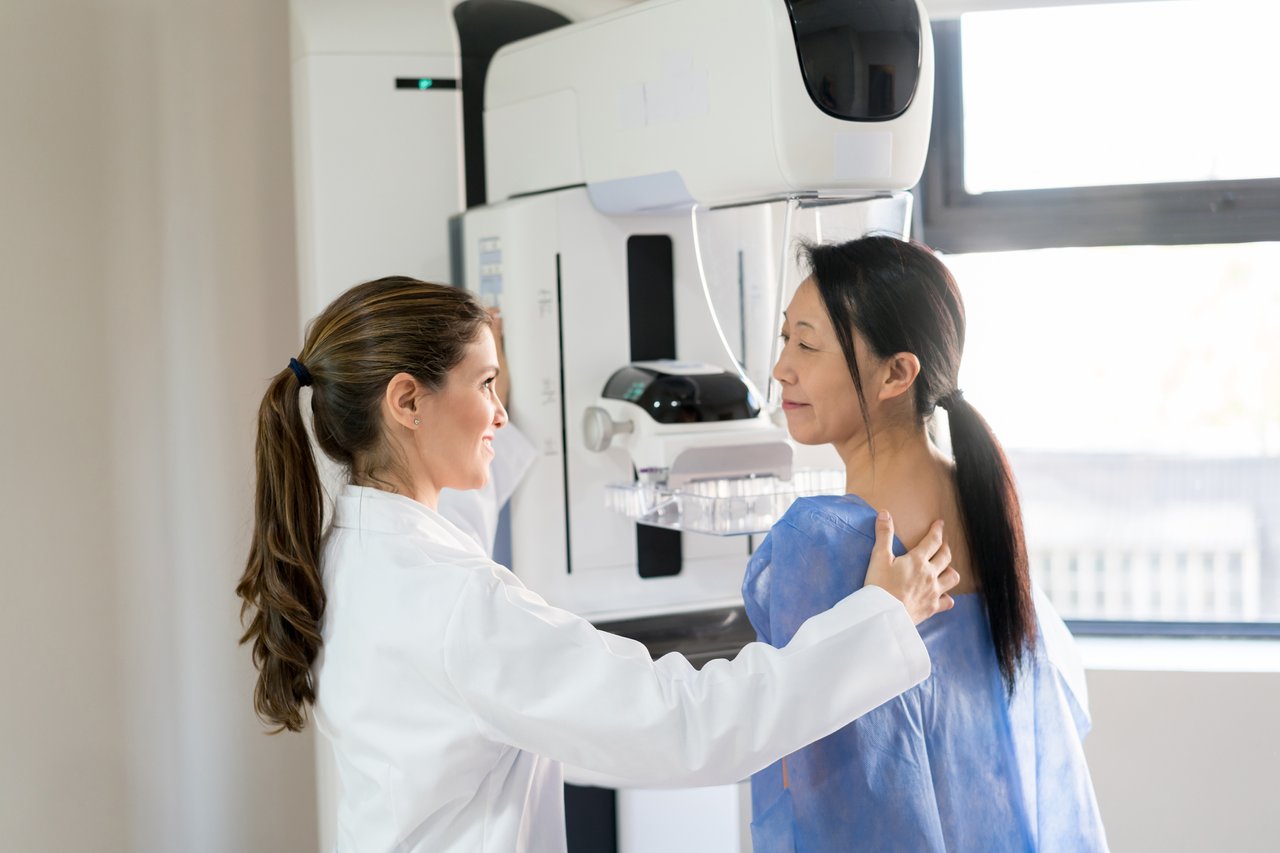
Early detection is crucial when it comes to breast cancer, and recent advancements in breast cancer screening and treatment have significantly improved survival rates. This Breast Cancer Awareness Month, we want to emphasize the importance of regular breast cancer screenings. At New York Oncology Hematology, we are committed to helping you understand the types of breast cancer screenings available and their significance in your health journey.
Who Should Undergo Breast Cancer Screening?
Screening guidelines vary depending on your risk factors. For women at average risk, which includes those without a personal history of breast cancer, a strong family history of the disease, or known genetic mutations, the United States Preventive Services Task Force recommends:
- Mammograms: Women between 40 and 74 should start annual mammogram screenings.
For women with a higher-than-average risk, including those with BRCA1 or BRCA2 gene mutations, a calculated lifetime risk of 20% or more, or exposure to chest radiation at a young age, the screening protocol is more comprehensive. They should consider:
- MRI Surveillance: Starting between the ages of 25 to 30.
- Annual Mammograms: Starting between the ages of 25 to 40, based on individual risk.
- Annual Supplemental Breast MRIs: Recommended for women diagnosed with breast cancer before the age of 50 or those with a personal history of breast cancer and dense breasts.
It's essential to discuss your specific screening frequency with your primary care provider, as national recommendations can vary by professional organization.
How Do Physicians Screen for Breast Cancer?
Mammography
Mammography is the primary screening method for women at average risk. It can detect breast changes, including lumps, cysts, or calcium deposits, often before any symptoms appear. Different types of mammography include:
- Film Mammography—This procedure uses x-rays to take pictures of the breast. This is the conventional type of mammography used for screening. It can be used to check for changes in the breasts, like lumps, cysts or calcium deposits.
- Digital Mammography— Similar to a film mammography, this screening uses a computer instead of x-rays to take digital photos of the breast. Digital mammography may be preferable for some women with dense breast tissue.
- 2-Dimensional Mammography—X-rays are used to take pictures of the inside of the breast from two different angles. A 2D image of the breast is created by a computer.
- Digital Breast Tomosynthesis—This uses x-rays to take a series of pictures of the breast from multiple angles. Then, a 3D image of the breast is created from those photos using a computer. This can allow doctors to see breast tissue more clearly, especially on women with dense breasts. This is also known as 3D mammography.
Breast Magnetic Resonance Imaging (MRI)
Breast MRI is a more sensitive imaging study that uses magnets and radio waves to create images of breast tissue. It's recommended for women in the high-risk category and may pick up benign abnormalities not visible on mammograms. Typically, it is not used for average-risk women.
Breast Ultrasound
Ultrasounds use sound waves to create breast images and are especially useful for identifying cysts and determining whether a mass is solid or fluid-filled. While not part of routine screening, it may be used as a secondary tool for women with dense breasts and abnormal mammogram findings.
Ask Your Physician About Screening Recommendations
If you have questions about breast cancer screening, your mammogram report, or your risk factors, consult your physician. They will provide personalized recommendations based on your individual health profile.
Akira Medical Imaging + Wellness is a New York Oncology Hematology (NYOH) affiliate imaging center. Akira is not just another imaging center—it’s an extension of the trusted care you know from NYOH. For over 35 years, NYOH has been a leading name in cancer care, and now, that same level of expertise and compassion is available through our state-of-the-art imaging services at Akira.
Akira Medical Imaging + Wellness offers:
- Diagnostic and screening mammograms
- Breast and pelvic ultrasounds
- Breast biopsies
- Bone density (DEXA) scans
Conclusion
Breast cancer screening is a vital tool for early detection, leading to better treatment outcomes. During Breast Cancer Awareness Month, we encourage women to prioritize their health and follow the recommended screening guidelines. At New York Oncology Hematology, we are here to support you on your journey to breast health. Together, we can raise awareness and improve breast cancer outcomes. If you find yourself with a breast cancer diagnosis, one of our breast cancer specialists at New York Oncology Hematology is here to help you continue to tell your story. Request an appointment today.

